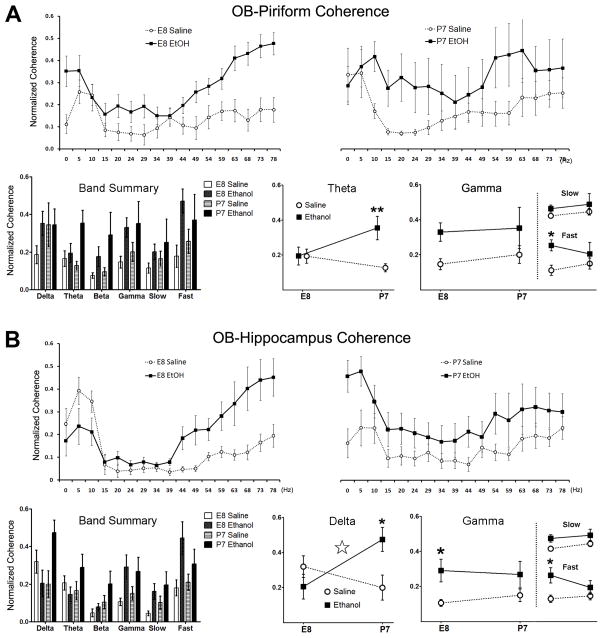Figure 7.
Inter-regional spontaneous coherence comparisons in adult mice treated with either saline or ethanol at either age E8 or P7. A) Spontaneous coherence measures between the OB and piriform cortex (PCX). Upper panels left and right show normalized coherence across frequencies 0–80Hz, with the grouped bar graph panel summarizing average coherences within each frequency band, defined as Delta (0–5Hz), Theta (5–15Hz), Beta (15–35Hz) and Gamma (35Hz–80Hz). There was a significant main effect for treatment in spontaneous theta band OB-PCX coherence (** p<0.01). When general gamma coherence was subdivided (inset plots) into slow (39–49Hz) and fast (75–80Hz) ranges, P7 ethanol (*p<0.05), but not E8 ethanol-treated adult mice show a significant main effect for treatment with elevated coherence over saline controls. B) Coherence between the olfactory bulb (OB) and Hippocampus with data presentation formatted as in (A). Lower panels of interaction plots display age-related differences between saline and ethanol treated groups, with additional insets for slow and fast gamma subdivisions. Spontaneous delta coherence between the OB and hippocampus was variable as a result of ethanol treatment based on timing of delivery with a a significant interaction between variables (Treatment x Age: ☆ p<0.05). Gamma coherence was elevated in adult mice treated with ethanol at age E8, most dramatically in the fast gamma frequency range (*p<0.05).

